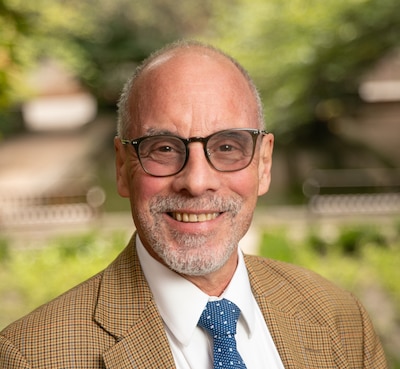

In First Person, Chalkbeat features personal essays from teachers, students, parents, and others who think and write about public education.
A few weeks after Election Day, a former student of mine, now a New York City public school teacher, reached out by email. She had just hosted a group of teacher friends in her apartment to reflect and discuss “where we are going as educators. One thing that kept coming up is the insistence from both the city and its administrators that teachers remain “neutral” when talking to students about the election results and the incoming Trump administration.”
She called the instructional guidelines presented on a slide at her school “murky” because, citing city policy, they advised:
“Schools have a duty to create a politically neutral learning environment. While presidential elections are a time to help educate and promote civic engagement, NYCPS employees should refrain from advocating for their favorite candidates or political parties, and refrain from wearing any garment that advocates for any candidate or political party.”
She went on to tell me that “the warnings our school boards have issued give the sense that no speech about Trump’s policies or the impact they may have on our school communities is allowed.” Her colleagues, she said, were “afraid to speak the truth” lest it be labeled as political speech.
 David C. Bloomfield (David Rozenblyum for Brooklyn College)
David C. Bloomfield (David Rozenblyum for Brooklyn College)
Despite the directive’s vague reference to a “politically neutral learning environment”, the rest of the text refers to party political campaigns and not to generic political issues.
In fact, classroom teachers are required to highlight political issues New York State Law and that of the state Citizen Readiness Initiative. A urban regulationsmeanwhile, states that the expectation of neutrality “does not prevent school personnel from discussing or disseminating information about election issues in connection with legitimate instructional programs and activities.” After the election, New York City Public Schools updated its update “citizenship for all” resources for this purpose.
We are on a need-to-know basis.
Every weekday morning, Chalkbeat New York brings thousands of subscribers the public school and education policy news they need to start their day. Sign up for our free newsletter to join them.
Within that framework, teachers are not only encouraged but also required to teach post-election issues in a factual manner within the context of the curriculum. These lessons can be in social studies, as well as science, math, English language arts, and the arts – when they are relevant. Even if the city’s neutrality guidelines are interpreted as going beyond partisan politics, the word used is “neutral” and not “neutered.” Teachers must draw strength from that difference and deal with the moment accordingly.
This isn’t Florida, or even there recently settlement on the ‘Don’t Say Gay’ legislation makes it clear that discussion of so-called prohibited topics, such as sexual orientation and gender identity, is allowed, even if those topics cannot be part of the formal curriculum in certain grades.
In New York, marginalized individuals and groups are protected and can be fully represented in the curriculum, just like current themes such as climate, trans rights, gun violence and immigration. Teachers should present this material responsibly and without demeaning individual students or students with differing views, but these considerations should enrich, not silence, classroom discussions.
I would add that, when planned, intentions to teach controversial topics can be brought to the attention of parents and school leaders, not for a veto but for possible discussion, and that those involved are prepared for any reaction from students or the community . Likewise, it may be advisable to report unplanned conversations in class afterwards.
New York State laws and curriculum standards—along with the ethical obligation to help students understand their world and build critical thinking skills—require teachers to resist perceived pressure to avoid controversial topics in context. This takes skills, and school leaders must provide professional development to help teachers navigate these difficult conversations.
But to answer the question posed by my former student turned elementary school science teacher, there is a need for educators to “deliver speeches related to Trump’s policies or the impact they may have on our school communities” , despite warnings from drivers. There is probably no point (though difficult to resist) in saying, “Here’s what I think,” but it is constructive to discuss differing opinions, supported by facts and ethical considerations.
David C. Bloomfield is professor of educational leadership, law, and policy at Brooklyn College and the CUNY Graduate Center. A former elementary and middle school teacher, he served as General Counsel of the New York City Board of Education.